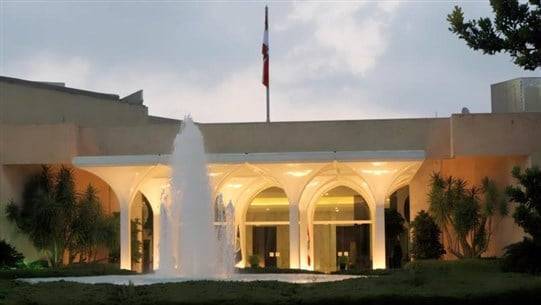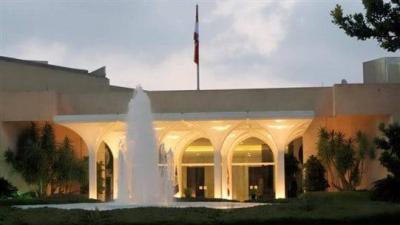Just a few hours before President Michel Aoun departs the presidential palace, as his term ends tomorrow evening, Monday, and returns to his residence in Rabieh, he has made accusations against his political opponents, the latest being a threat to sign the resignation of the already resigned government following the parliamentary elections. The exit from the presidential palace does not appear to be similar to the entrance he made six years ago when he was elected almost by national consensus. Back then, after two years of presidential vacancy, the Lebanese believed that the rebellious general from Rabieh had reached a level of political maturity that would allow him to achieve social justice for Lebanon, which he had long touted amidst an atmosphere of prosperity and economic flourishing. However, from the very first day of his presidency, his concern has been how to secure the presidency for his son-in-law, whom he had forcefully entrusted with the leadership of the Orange Movement. He relied on his previous experience as head of the illegitimate military government under the pretext of protecting the constitution and institutions, as he claimed until his forced exit on October 13, 1990, following his rebellion and opposition to the Taif Agreement that ended the civil war. This agreement became the basis of the country's constitution, which Aoun had sworn to uphold six years ago and expressed his commitment to all its provisions. Today, he insists on overturning it once again by creating norms and interpretations that hold no constitutional meaning, reflecting a thirst for power even at the expense of what remains of the state's ruins and institutions, which he and his entourage have depleted of all their components over the past six years. The drought, oppression, famine, and loss of hope that Lebanese people have endured have made them reject everything, resulting in some preferring to flee in death boats rather than remain in the hell brought upon them by the current rule.
With only a few hours left in his term, Aoun threatens to sign a decree accepting the resignation of the government that has already resigned since the parliamentary elections last May. What basis does Aoun rely on if he proceeds with this step? Is there any constitutional text that permits him to do so? Former Minister and lawyer Edmond Rizk, considered an authority on the Taif Agreement, disclosed in an interview that, according to established norms and constitutional agreements, a series of decrees should simultaneously be issued: one accepting the government's resignation, another appointing the president tasked with forming the new government, and a decree appointing ministers based on the prime minister's proposal. Issuing a decree to accept the resignation while leaving the vacancy is a grave mistake. In his opinion, the basic obligation is to prevent the vacancy and to issue simultaneous decrees to accept the resignation, designate the appointed president, and form the government.
Regarding the caretaker government, he stated: “In the narrow sense of matters, necessities allow for exceptions because there is no such thing as prior or complete vacancy in the constitution; there is a vacancy in positions, not in responsibilities, and there is a direct responsibility on everyone occupying a position of authority to prevent the vacancy or face a grave error equivalent to bad faith, which can be seen as betrayal.” He added, “Every responsible individual must exercise their responsibilities with honor and dignity, and any excuse or reason is invalid and justifies neither inability nor failure, regardless of the current situation and regardless of the people involved.” He emphasized that fulfilling responsibilities is a duty for those in positions, and any refusal to do so under any circumstances is a renunciation that nullifies eligibility, recalling the last era Lebanon experienced with constitutional dignity—the presidency of Elias Sarkis. He remarked, “There was an opportunity for the continuity of the state after Elias Sarkis with Sheikh Bashir Gemayel and after the Taif Agreement with President Rene Mouawad. In the end, however, republic communication was severed, Baabda turned into a guesthouse, and those who occupied it became mere lodgers.” He called for a popular awakening to overthrow the rampant corruption wherever it may be, although alternatives are not available.




